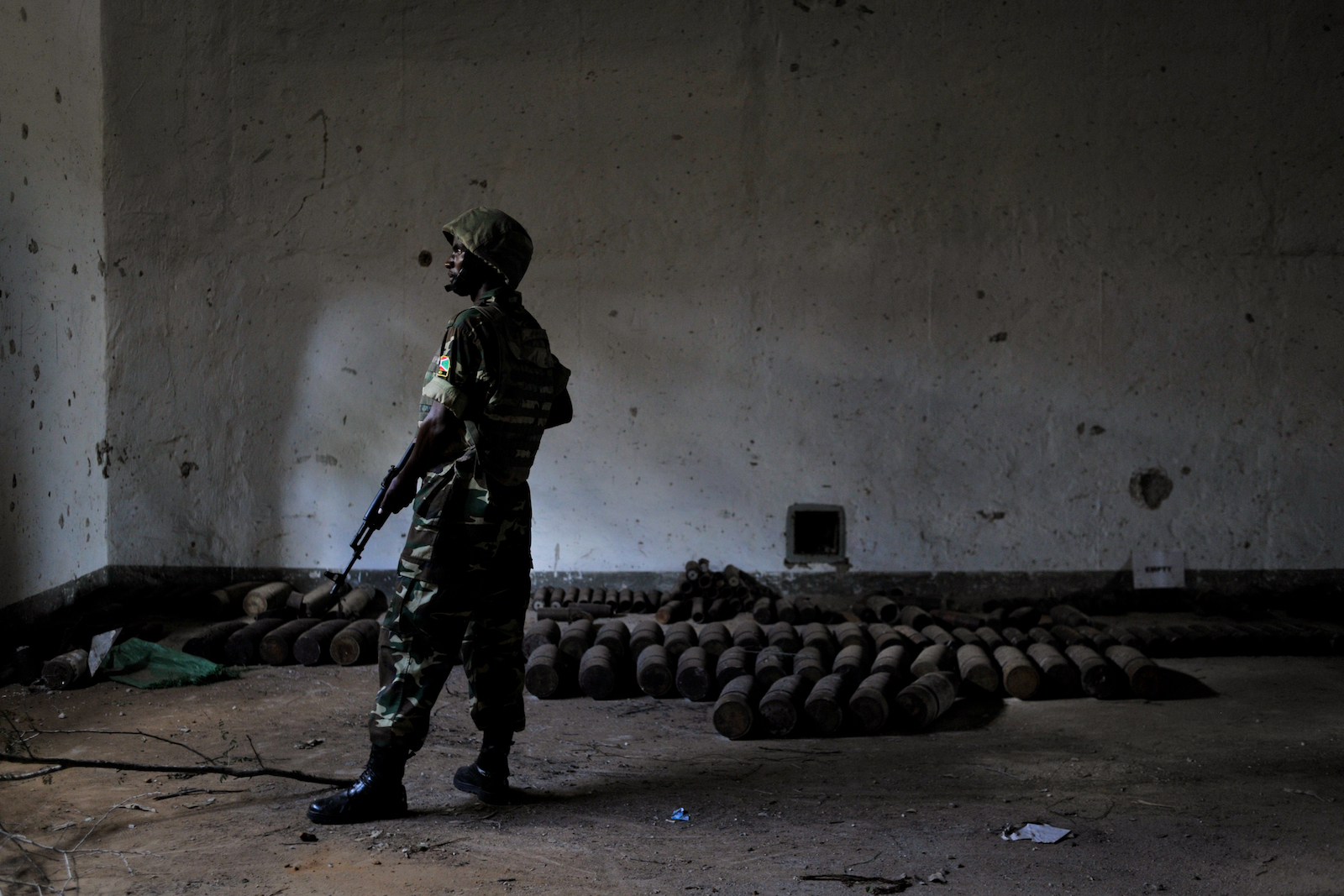
Revisiting the Somali Arms Embargo
Due to the civil war and chaotic conditions in Somalia over the last two decades, the UN imposed an arms embargo on Somalia in order to mitigate the conflict. Somalis need to appreciate the reasons for the embargo and while progress has been made in security wide swaths of the country more needs to be done. The warlords who are vying for power have been the main source of the conflict. And as a result, the embargo, though it was intentionally violated by some frontier countries in the past, was intact in Somalia. Now is the time to consider removing the two decades old UN arms embargo on Somalia for a variety of reasons.
If the main reason for the arms embargo in Somalia was to minimize the misuse of weapons and civilian casualties by the hands of warlords, Somalia is now free from warlords. Warlords cannot claim popularity in the new political dynamics of Somalia as their power was severely diminished in 2006 by what was then known as the Islamic Courts Union (ICU).
A Functioning Federal Government
For the last twelve years, Somalia was under a transitional system. The transition-based system was supposed to end in 2002, but due to some factors, another transitional government was established in Kenya.
However, the process that was termed as a “Road Map” facilitated by the UN Special Representative with the key stakeholders in Somalia has successfully concluded the transition system in 2012. A provisional constitution was passed, and clan elders were empowered to select qualified members of their clan to be part of the Federal Parliament. Despite all the obstacles the elders succeeded in identifying those who qualified for the parliament.
The transition that was created in 2012 is considered to be an inclusive process that Somalis agreed to as a system of governance. Consequently, there is no reason to fear one another. The process of creating the Federal Parliament has encouraged a power sharing system, and as a result, no one can have a monopoly in Somalia’s political fate. Therefore, it is time to lift the UN arms embargo in Somalia.
Enhancing Internal Security
For the last five years, the African Mission in Somalia (AMISOM) has been the security power that was fighting al-Shabaab and maintaining the security of south-central Somalia. For sure, AMISOM has a mandate that will end sooner or later, and the inclusive governance system that is in place has to assume responsibility for the security of the country.
Logically if the Somali government wants to provide security to its people, it cannot continue to depend on AMISOM for its security. Therefore, in order to provide its own security, the Somali security system must be rebuilt. However, it cannot be rebuilt as long as the UN arms embargo is still in force.
Sovereignty
Though Somalia has experienced a destructive civil war for the last twenty years, the country achieved independence in 1960. However, because of the security vacuum and lack of effective governance, the rule of law was not present. Momentum for Somalia’s success is growing. Al-Shabaab was defeated, and the expats have begun to return to the country to establish businesses and contribute their skills to the rebuilding of the country.
Furthermore, the commitment and the vision portrayed by the current government has helped gain the hearts and minds of the international community, mainly the United States and EU countries. As a result, on January 17, former Secretary of State, Mrs. Clinton publicly announced that the U.S. has officially recognized the Federal Government of Somalia and the EU received President Hassan Sheikh Mohamud in Brussels, and he met with Prime Minister David Cameron in London. These developments that reconfirmed the sovereignty of Somalia should be translated into the lifting of the UN embargo on Somalia in order for Somalia to protect its borders, as do other sovereign nations.
It is time for the United Nation’s Security Council to seize the momentum and lift the arms embargo so that Somalia can rebuild its security system as a sovereign state that is part of the world community.

